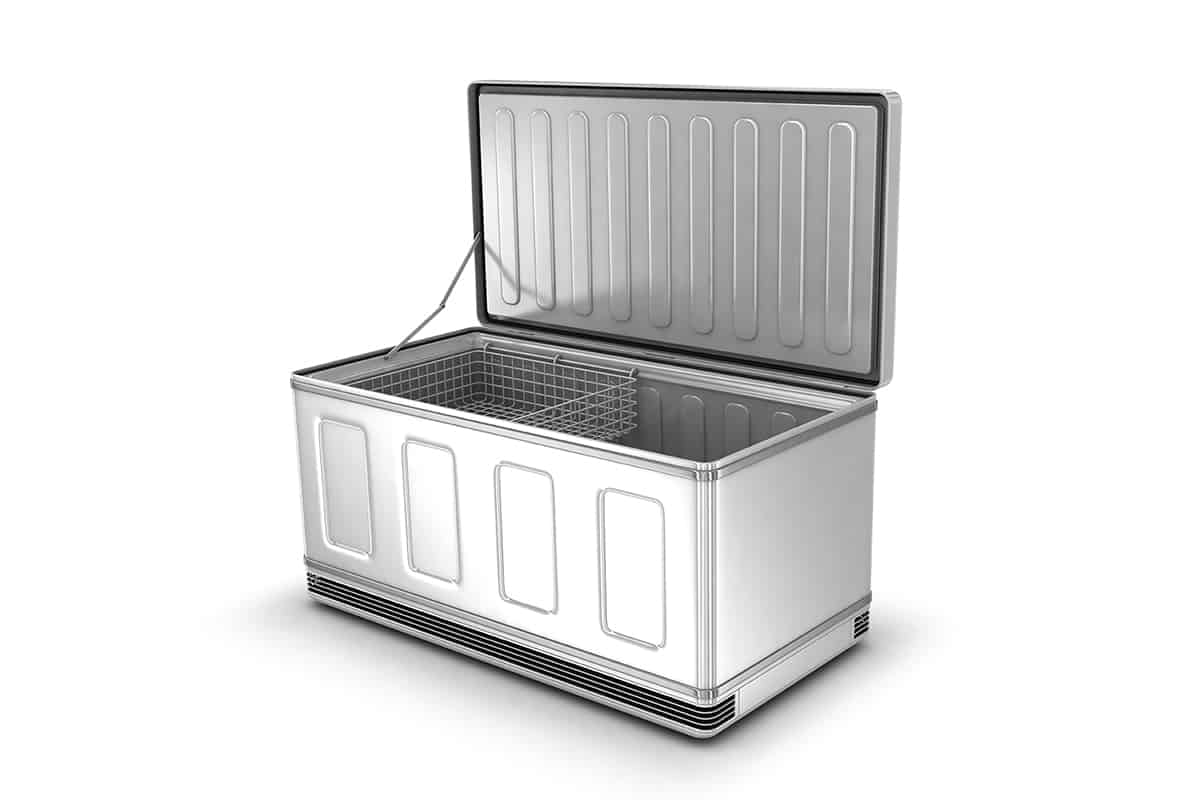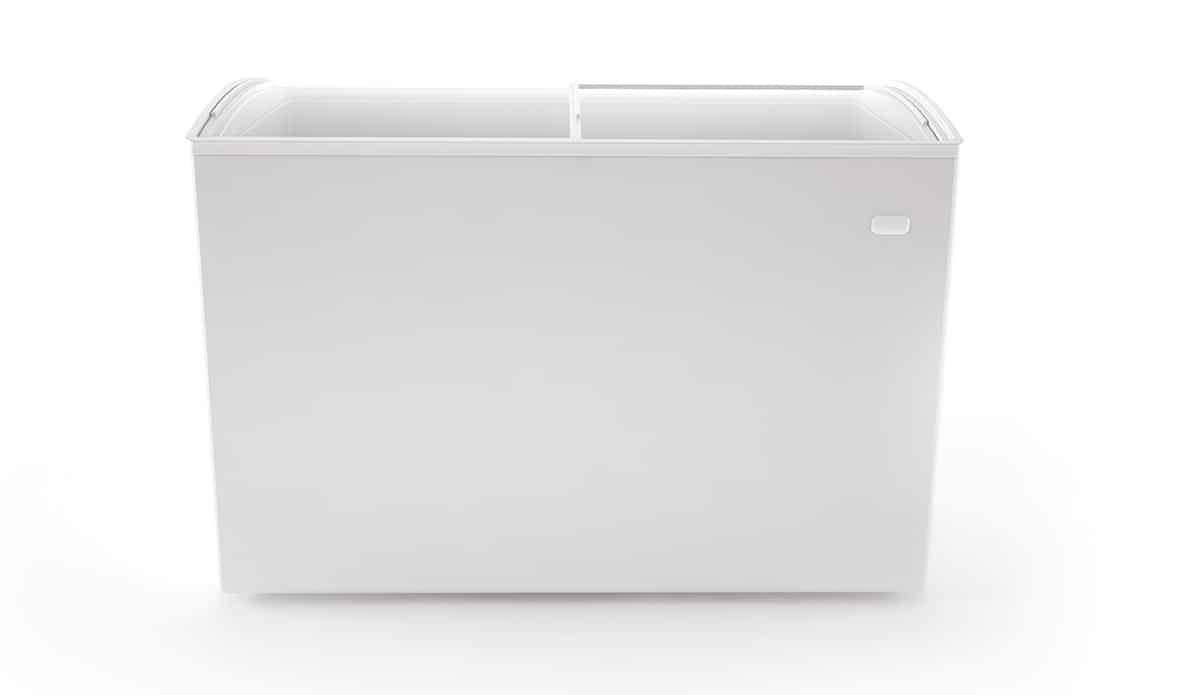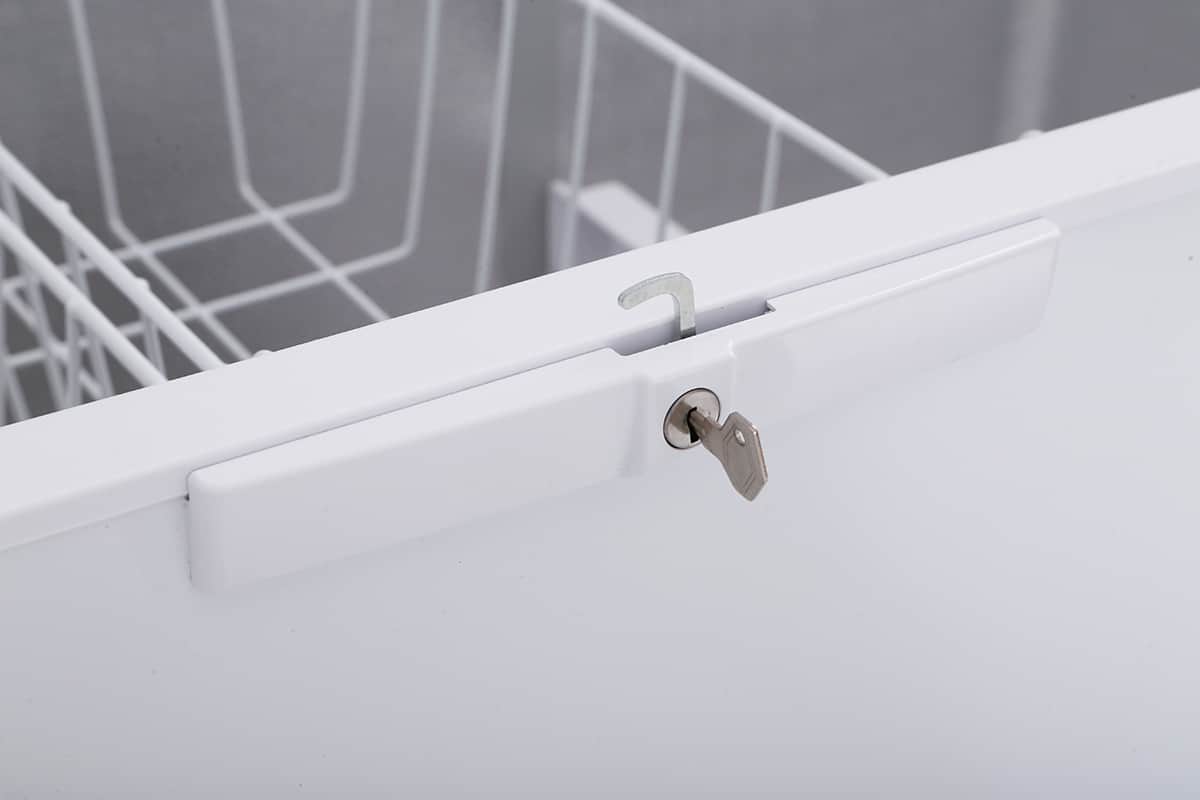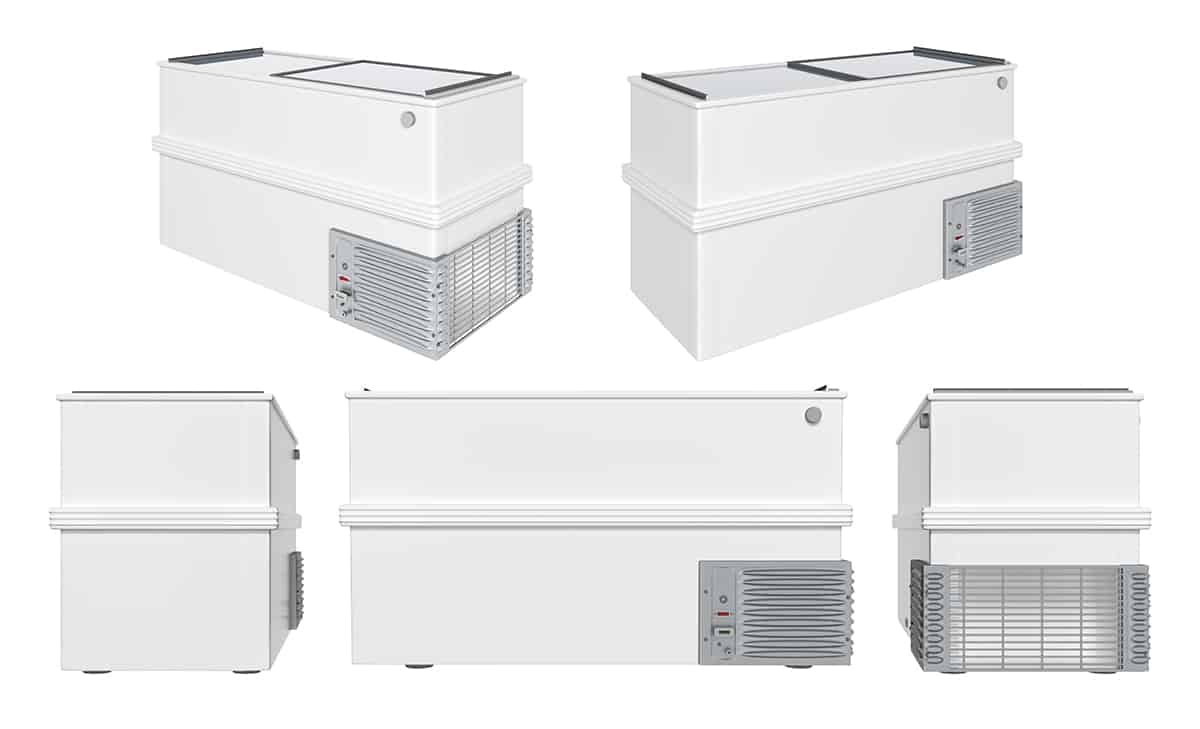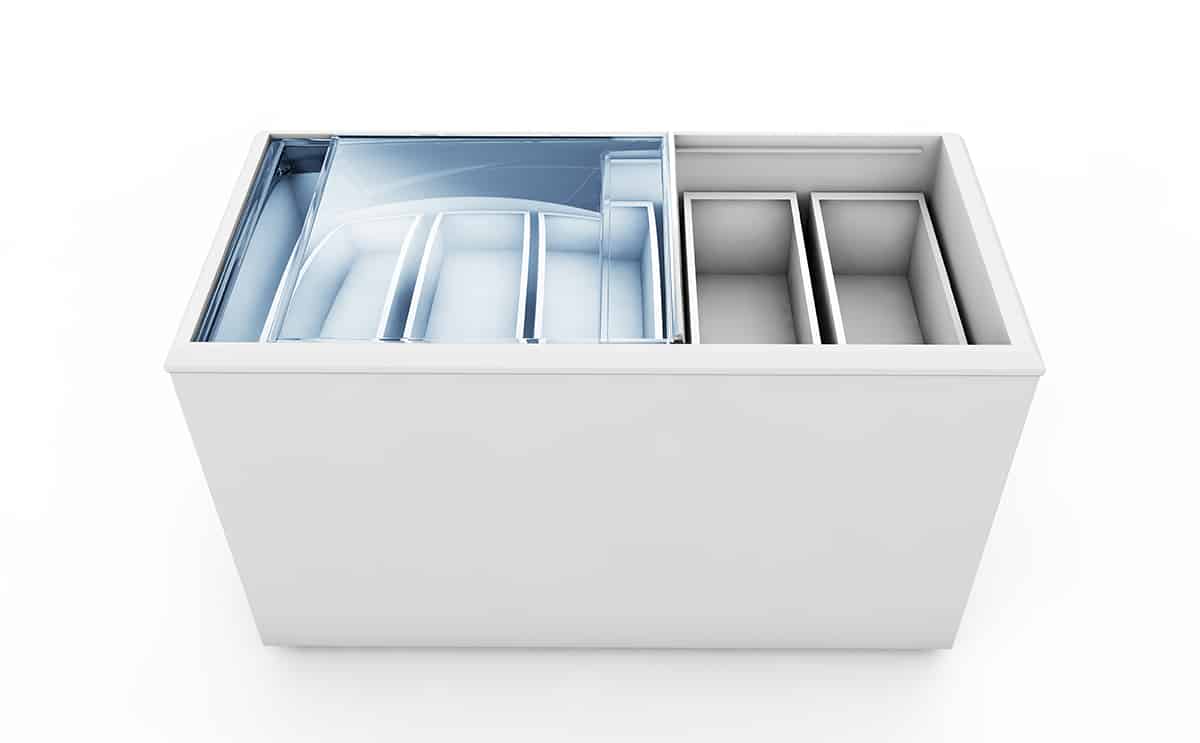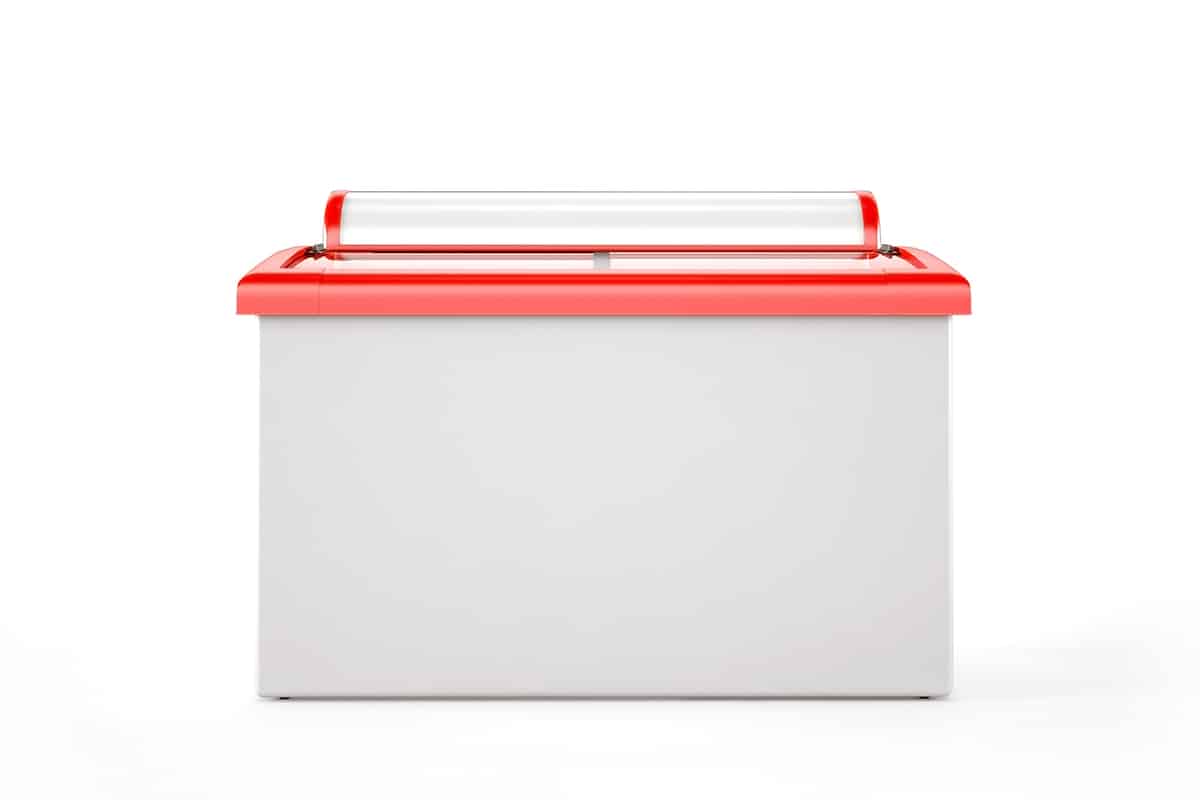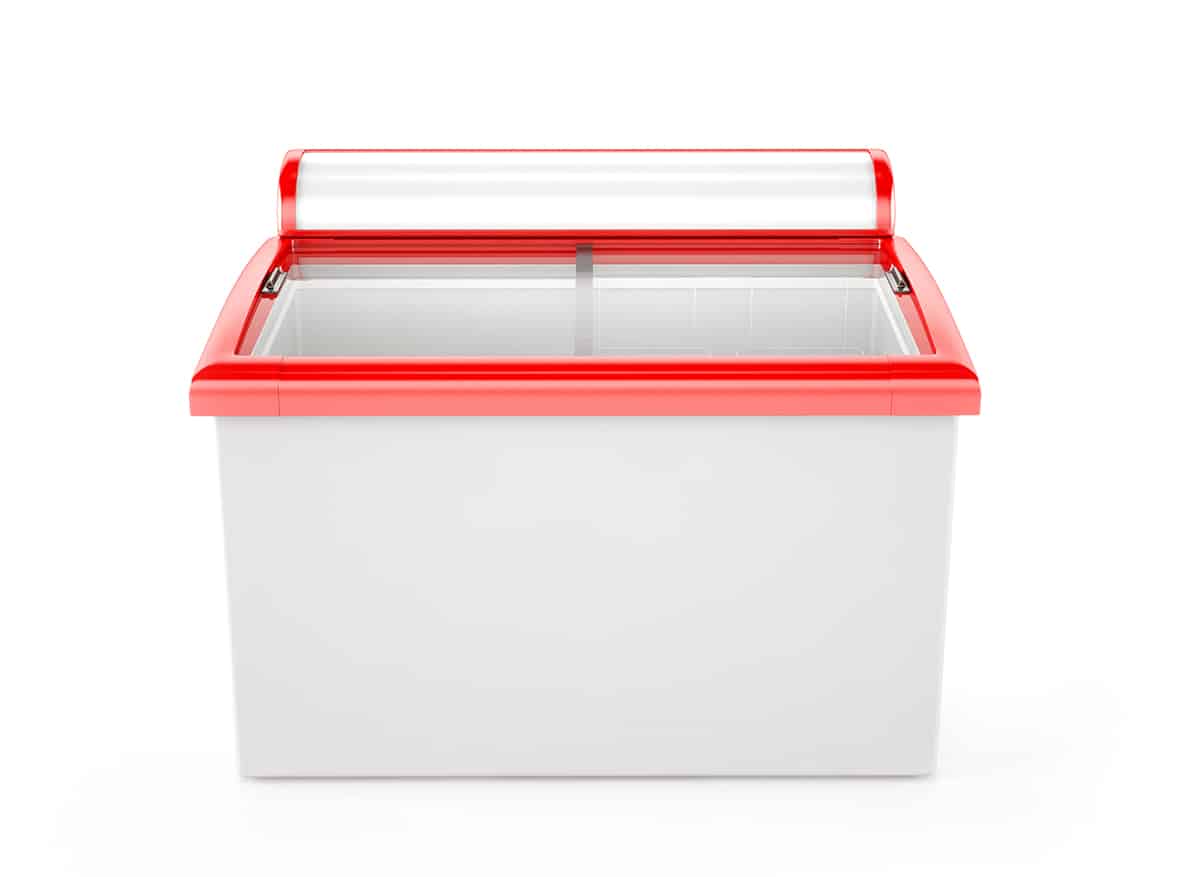Chest freezers are the cool kids of the freezer world. With their sleek and stylish design, they are sure to be the centerpiece of any kitchen. But, just like all cool things, chest freezers have a shelf life and will eventually “melt” away. While they can keep your food frozen for years, they don’t last forever.
The following symptoms will indicate that you should replace your chest freezer:
- Inefficient cooling
- Increased energy consumption
- Excessive noise
- Constant frost buildup
- Age
In this guide, we’re going to talk about how long the average chest freezer lasts, the clear-cut signs that mean it’s time to replace the appliance and the various things you can do to prolong its lifespan.
When Should I Replace My Chest Freezer?
In the end, the lifespan of a chest freezer will be different depending on several factors. A chest freezer’s lifespan can be extended through regular servicing and careful use, but eventually, every appliance has its day in the sun and must be replaced.
Here are the signs you should keep an eye out for.
1. Inefficient cooling
What I mean by “inefficient cooling” is that the freezer can no longer keep food at a constant temperature, which results in either over-freezing or partial thawing. This happens when the freezer’s cooling system is malfunctioning and the internal temperature is constantly changing.
When a chest freezer is inefficient, it has to work harder to maintain the desired temperature, which can lead to an increase in energy consumption and higher energy bills. Additionally, food stored in the freezer may be at risk of spoilage if the temperature is not low enough.
In this case, it is a sign that the freezer may need to be replaced as the cooling system is no longer functioning as it should and is not able to keep food safely frozen. If you are experiencing inefficient cooling, it’s best to start shopping for a new chest freezer, as repairing the cooling system can often be more expensive than simply replacing the entire freezer.
2. Increased energy consumption
Increased energy consumption means that it takes your chest freezer more energy and time to perform its main task—i.e., freezing food—than it did during its prime. This can happen for a variety of reasons, such as an aging compressor, poor insulation, or a failing door seal.
When a chest freezer has to work harder to maintain a consistent temperature, it will consume more energy, which can be reflected in your monthly energy bill. This can also be a sign that the cooling system is no longer as efficient as it once was and may need to be replaced.
Moreover, if the chest freezer consumes more energy and runs constantly, it can place added strain on the mechanical components, leading to more wear and tear and a shorter lifespan.
3. Excessive noise
Do you remember what your chest freezer sounded like when you first took it home? Now, listen to its compressor and motor and try to compare it to the sounds it made when it was still brand-new. If there’s a significant uptick in noise production, it could mean that it’s suffering from mechanical failures, such as a failing compressor or fan.
If you notice excessive noise coming from your chest freezer, it’s a sign that it may be time to replace it. This is because repairing the mechanical components can often be more expensive than simply buying a new freezer, and a noisy freezer may also indicate that it’s no longer functioning as efficiently as it once was.
4. Constant frost buildup
A fully functioning chest freezer needs to be defrosted at least once a year (sometimes twice). This is to get rid of frost buildup, which can prevent proper airflow and possibly lead to a clogged drain port or freezer burn. However, if you find yourself defrosting your chest freezer more frequently, it’s time to take it out to the barn.
Frost accumulation may indicate that the freezer’s door seal is no longer doing its job of containing the cold air. Damaged or worn door seals let cold air out every time the door is opened, resulting in condensation buildup. It can also increase the freezer’s energy consumption because it has to work harder to maintain a constant temperature, and it can make it more difficult to access and organize your food.
5. Age
Like all good things in life, chest freezers don’t last forever. There will eventually come a time when repairing the worn-out parts is costlier than purchasing a brand-new chest freezer. When it reaches that point—usually after 15 years of consistent usage—it’s time to get a new chest freezer.
Now, don’t feel too discouraged about the upfront costs of younger and hotter chest freezers! If you get a model that’s Energy Star certified, you can rest assured that your freezer won’t just last for longer but will also use much less energy to function. It’s an investment for the future!
How Long Does a Chest Freezer Last?
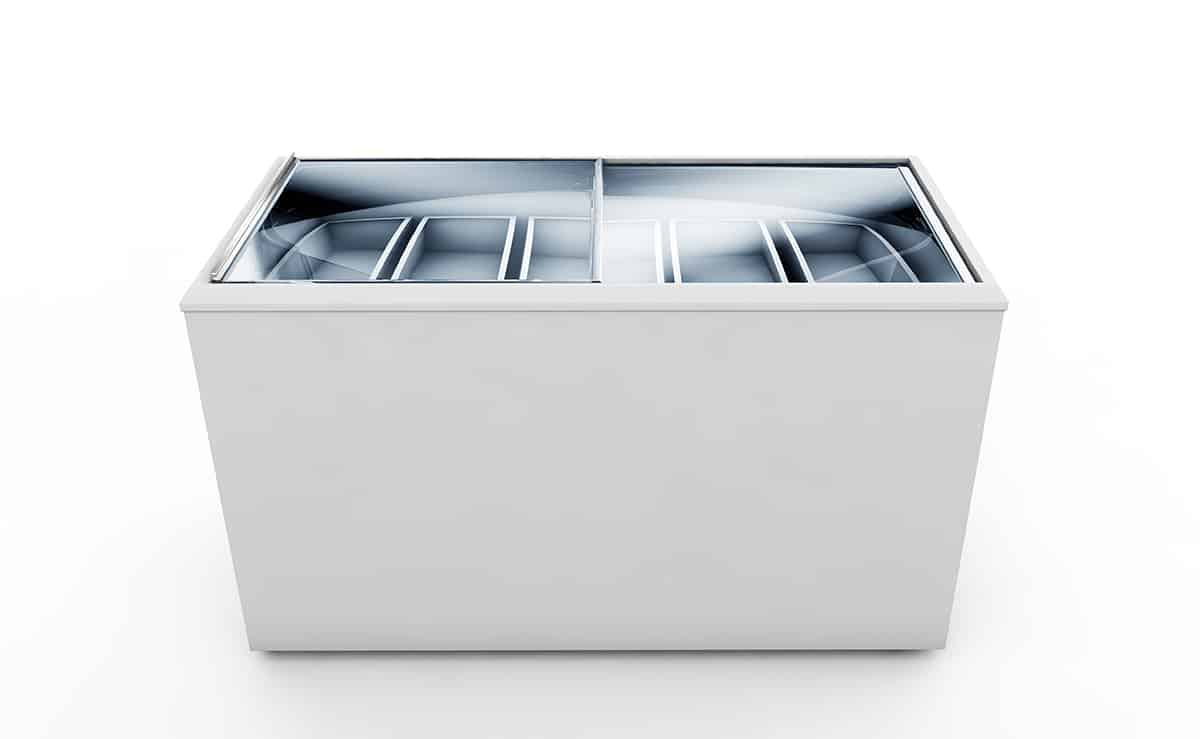
Chest freezers typically last between 15 to 20 years, with some high-end models lasting up to and beyond the 2-decade mark. The lifespan of a chest freezer depends on various factors such as the make and model, usage, and maintenance. Regular use and frequent opening of the freezer door can cause the mechanical components to wear out more quickly, while proper maintenance and cleanliness can extend its life.
The chest freezer’s longevity can also be affected by its storage conditions. The freezer’s cooling system will experience more wear and tear if it must work harder to maintain a constant temperature in a hot or humid environment. But if you store your chest freezer somewhere cool, dry, and well-ventilated, it will serve you well for years to come.
Tips for Maintaining a Chest Freezer
You’d be surprised by hot many chest freezers fail before the 10-year mark. Luckily, you can do a few simple things to ensure your chest freezer remains in tip-top shape for much longer.
1. Keep it clean
Regularly cleaning the interior and exterior of the chest freezer can help extend its lifespan. Clean any spills and condensation as soon as they occur to prevent frost buildup.
2. Check the door seal
Make sure the door seal is tight and intact to prevent cold air from escaping and frost buildup. Clean the seal and check it for cracks or gaps. If the gasket is damaged in any way, replace it as soon as possible.
3. Organize the contents
Keep the food organized so that air can circulate freely and the freezer can maintain an even temperature. This can help prevent frost buildup and increase efficiency.
4. Keep it level
Make sure the freezer is level to prevent the cooling system from working too hard. Place it on a flat surface and level it if necessary to ensure that your food is stored properly, the air is circulated effectively, and that frost doesn’t build up in one particular spot.
5. Defrost regularly
Regularly defrost the freezer to remove any frost buildup. This can help maintain its efficiency and prevent food spoilage. Remember to do this at least once a year!
6. Avoid overloading
Avoid overloading the freezer, as this can make it difficult to maintain an even temperature. Leave some space between items to allow air to circulate.
7. Monitor temperature
Regularly check the temperature inside the freezer to make sure it is staying at the desired temperature. If the temperature fluctuates, it may be a sign that the cooling system is no longer functioning properly.
